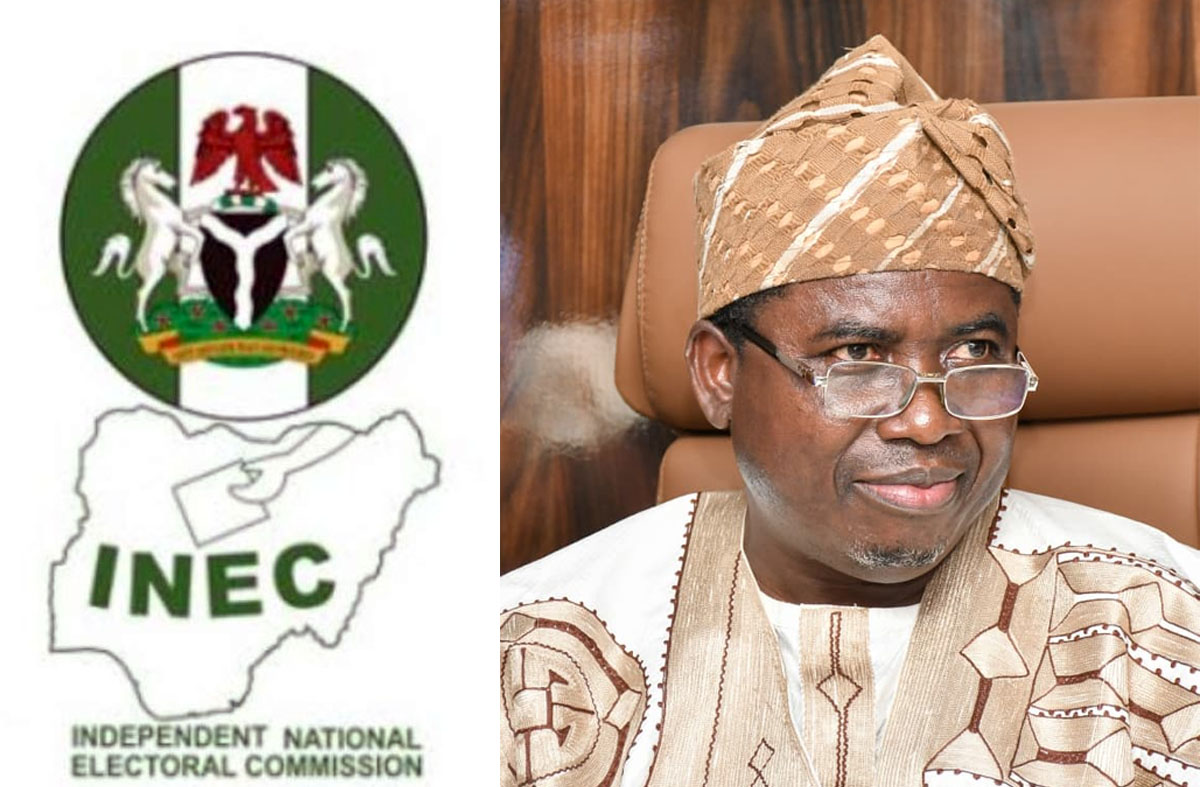News
WhatsApp, Meta Platforms want tribunal to quash FCCPC penalty on 22 grounds

WhatsApp, Meta Platforms want tribunal to quash FCCPC penalty on 22 grounds
WhatsApp and its parent company, Meta Platforms Incorporated, have cited 22 reasons why the Federal Competition and Consumer Protection Commission (FCCPC) order imposing a $220 million penalty should be set aside by the Competition and Consumer Protection Tribunal, among others.
This is detailed in their notice of appeal against the FCCPC, which was exclusively seen by Nairametrics.
Newstrends previously reported that the FCCPC, an agency under the Federal Ministry of Industry, Trade and Investment (FMITI), had imposed a $220,000,000 penalty on Meta Platforms Incorporated over alleged discriminatory practices against Nigerian data and consumers.
In a statement signed by Dr. Adamu Abdullahi, Acting Chief Executive Officer of the FCCPC on July 26, 2024,the penalty followed a joint investigation by the Commission and the Nigeria Data Protection Commission (NDPC) into Meta Platforms’ conduct, privacy policies, and practices between May 2021 and December 2023, a period of 38 months.
According to the statement, in May 2021, the Commission had directed WhatsApp LLC and Meta Platforms, Inc. (formerly called Facebook Inc.) to defend themselves regarding its investigative report, which detailed how their conduct allegedly violated relevant data laws.
Meta was said to have provided some information in response to the requests and summons under the joint investigation.
However, the Commission disclosed that the investigation concluded that Meta Platforms had engaged in conduct constituting continuing infringements of Nigeria’s consumer protection and data laws over an extended period.
It expressed concerns about Meta’s allegedly abusive and invasive practices affecting data subjects and consumers in Nigeria.
These included unauthorized use of personal data, discriminatory treatment compared to other regions with similar regulations, and the exploitation of market dominance to enforce privacy policies that collect personal information without giving consumers the option to consent or refuse.
“The Final Order of the Commission mandates steps and actions Meta Parties must take to comply with prevailing laws and cease the exploitation of Nigerian consumers and market abuse, as well as desist from future similar or other conduct/practices that do not meet nationally applicable standards and undermine the rights of consumers,” the FCCPC statement partly reads.
WhatsApp, Meta platforms grounds of appeal
In the social media giants’ 22 reasons listed in their notice of appeal seen by Nairametrics, their legal team argued that the FCCPC erred in all the findings, directions, and decisions contained in its orders.
READ ALSO:
- Shehu Sani speaks on Trump’s threat of Third World War should he lose US election
- Protests break out as Maduro declared winner of disputed Venezuela election
- Israel insists on harsh response to Hezbollah
They are leveraging their appeal to ask the tribunal to quash the FCCPC’s orders in their entirety.
Here are the reasons listed by WhatsApp and Meta Platforms:
Vague Rights of Nigerian Users
Meta Platforms insisted that the FCCPC’s directive to “immediately reinstate the rights of Nigerian users to self-determine and control the use, processing, sharing, or transfer of their data” is unreasonably vague, creating excessive uncertainty.
According to Meta, the obligation requested by the FCCPC does not consider the operational complexities inherent in the WhatsApp service, thereby imposing an impossible burden on the appellants.
Ambiguous privacy policy order
Meta insisted that Nigerian users are fully at liberty to reject its privacy policy by declining to accept WhatsApp’s Terms of Service and not using the WhatsApp service.
Furthermore, it argued that the privacy policy order by FCCPC is ambiguous because WhatsApp had updated its privacy policy in a format that allows Nigerian users to fully express their legitimate rights prior to the initiation of the FCCPC’s investigation.
Unjustifiable order on data sharing between platforms
Meta insisted that it is unjustifiable for the FCCPC to order it to immediately halt sharing WhatsApp user information with other Facebook companies and third parties until users have voluntarily consented to each aspect of how their data will be used.
It submitted that forcing WhatsApp to rely on consent for its data sharing is discriminatory, contrary to the express provisions of the law, and disregards industry-standard practices.
Meta privacy policy not subject to FCCPC approval
WhatsApp and Meta insisted that Nigerian law does not require that the privacy policy of a data controller be approved in advance by either the Commission or the Nigeria Data Protection Commission (NDPC), nor does the law authorize any of the agencies to insist on such prior approval.
Meta can’t revert to its data sharing practices of 2016
Meta insisted that there is no legal basis for the Commission to direct the appellants to revert to the “data sharing practices adopted in 2016” (which allowed users to consent or withhold consent).
It maintained that the companies’ data practices do not violate Nigerian law and, therefore, do not warrant such a directive from the Commission.
Unclear blockage of WhatsApp data transfer to Facebook
The appellants submitted that the instruction to stop transferring data from WhatsApp to Facebook and other third parties without explicit consent from users is unclear, as one can make full use of the WhatsApp messaging service without signing up for a Facebook account or any other Meta product.
READ ALSO:
- Israel minister urges NATO to expel Turkey over threat
- Wigwe University Registrar dies in Abuja hospital
- Forty-five killed, dozens trapped in India landslides
No need for written assurance to FCCPC
The appellants stated that they had not taken any steps detrimental to the interests of their Nigerian users and that there was no need for the FCCPC to mandate them to submit a “written assurance” assuring it would not infringe on consumers’ rights.
Erroneous proposed remedy package for consumers
The appellants argued that they have no remedy “package” to comply with.
Furthermore, they contended that the 15-day timeframe stipulated by the order for the execution of the “Proposed Remedy Package” for consumers is inadequate and does not provide an adequate period for implementation.
Meta can’t pay FCCPC $35,000 as investigation cost
The appellants submitted that the Commission erred in law when it ordered that the “Meta Parties shall reimburse the Commission the cost of the investigation in the sum of Thirty-Five Thousand U.S. Dollars only ($35,000.00) (at prevailing exchange rate where applicable) under Section 23(2)(f) of the FCCPA.”
They argued that there is no legal basis for the Commission to direct the appellants to reimburse the costs of conducting its investigation, as they are not obligated by or liable in law to pay these costs.
$220 million penalty is hefty
The appellants also argued that the FCCPC denied them a fair hearing by imposing a hefty penalty without giving them an opportunity to understand the means by which the penalty would be calculated and to respond to the calculation of the proposed amount.
Impossible to build Data Consent Mechanisms
The appellants argued that contrary to the FCCPC’s order on compliance, it would be impossible to identify and build a consent mechanism for each data point processed by Nigerian consumers. They added that doing so would be “extremely expensive.“
FCCPC can investigate Meta without requiring the presence of Its personnel
The appellants argued that FCCPC experts can always conduct data handling compliance audits of Meta, without needing its personnel.
“Further, the appellants have no physical presence in Nigeria, thus negating any need for, or point in having, an audit from the Commission,” they stated.
Meta Can’t be compelled to obtain FCCPC prior approval
The appellants stated that the Commission has no powers to compel them to obtain the approval of the Commission or the NDPC prior to the publication of its privacy policy within ten days.
They further argued that updates to its privacy policy require extensive engagement with stakeholders across WhatsApp, and substantial amendments can take months to implement.
Proposed remedy package will take time to implement
The appellants argued that it is not technically possible to implement any proposed remedy package for Nigerian consumers (whose rights have been allegedly infringed upon) within 15 days, as directed by the FCCPC.
WhatsApp, Meta does not coerce Nigerian consumers
The appellants argued that if FCCPC’s Order Number 5 of the Final Order is intended to reference “tying in the sense of coercion by an allegedly dominant party of a consumer to accept a tied product as a condition of receiving a tying product, leading to the foreclosure of competition,” no such thing exists in WhatsApp or Meta.
Meta wasn’t formally probed by FCCPC
The appellants argued that the Commission erred when it ordered Meta to produce information in the investigation of WhatsApp without formally initiating an investigation of Meta.
They argued that WhatsApp is a distinct legal entity from Meta.
No need to penalize Meta
The appellants further argued that there was no evidence before the Commission showing that WhatsApp was acting on behalf of Meta, and therefore no evidence to warrant treating Meta as a target of the Commission’s orders.
Fair hearing
WhatsApp and Meta argued that the Commission erred in issuing the Final Order because it failed to consider the submissions made by the appellants before issuing the final order, thereby violating their right to a fair hearing.
WhatsApp, Meta was not allowed to query the calculation of the penalty
The appellants urged the tribunal to hold that the Commission was in error because it did not afford them an opportunity to make representations on the feasible period required for compliance with its decisions, the amount of the penalty imposed, or the methodology employed in calculating the penalty.
FCCPC made no findings against WhatsApp, Meta
The appellants’ legal team also argued that the Final Order issued by the Commission is fundamentally flawed due to its failure to disclose any findings of fact or law or to provide reasons for the decisions or penalties.
FCCPC fined WhatsApp and Meta without the signature of its Executive Chairman or Vice Chairman
The appellants argued that the position of the Executive Vice-Chairman of the FCCPC was allegedly vacant at the time the Final Order was signed.
It stated:
“To be clear, while President Bola Tinubu appointed Mr. Olatunji Bello on June 24, 2024, as the Executive Vice-Chairman of the Commission, his appointment had, at all material times, not been confirmed by the Senate in accordance with Section 5 of the FCCPA.
“Thus, it effectively means that the position of the Executive Vice-Chairman was vacant on the date shown on the face of the Final Order.”
Unreasonable orders
WhatsApp and Meta believe that the Final Order of the FCCPC “is unreasonable and against the weight of evidence.”
They urged the Tribunal to allow their appeal and set aside all of the decisions reached in the Final Order of the Federal Competition and Consumer Protection Commission.
What you should know
Per data from Statista, there were nearly 41.6 million Facebook users in Nigeria as of May 2023, which is 18.5% of the country’s population.
Following the FCCPC’s orders, WhatsApp reacted, saying, “In 2021, we went to users globally to explain how talking to businesses, among other things, would work. While there was a lot of confusion then, it has actually proven quite popular.”
Meanwhile, fines such as the ones imposed against Meta are not uncommon. Last year, the European Data Protection Agency fined the tech giant Facebook a record €1.2 billion for not complying with the EU’s privacy regulations.
The Irish Data Protection Commission stated that Meta, the parent company of Facebook, violated the General Data Protection Regulation (GDPR) by transferring large amounts of European Facebook users’ personal data to the United States without adequately protecting it from U.S. data surveillance practices.
Amazon had previously been fined €746 million by Luxembourg, and the Irish regulator imposed four fines on Meta’s platforms—Facebook, Instagram, and WhatsApp—ranging from €225 million to €405 million between 2021 and 2023.
Over the past five years, Big Tech companies Amazon, Meta, and Google have faced some of the largest fines imposed under the European Union’s General Data Protection Regulation (GDPR) privacy laws.
The legality or illegality of the recent penalties and orders against WhatsApp and Meta Platforms is now a matter for the courts to determine.
WhatsApp, Meta Platforms want tribunal to quash FCCPC penalty on 22 grounds
News
2027 General Elections: INEC Announces February 20 for Presidential Poll

2027 General Elections: INEC Announces February 20 for Presidential Poll
The Independent National Electoral Commission (INEC) has officially fixed February 20, 2027 for Nigeria’s presidential and National Assembly elections, while governorship and State Houses of Assembly elections will be held on March 6, 2027.
INEC Chairman, Joash Ojo Amupitan, announced the dates on Friday during a media parley at the Commission’s national headquarters in Abuja, describing the move as the formal commencement of the 2027 general elections process.
According to the INEC chairman, the release of the Notice of Election and the comprehensive timetable complies with provisions of the 1999 Constitution of Nigeria and the Electoral Act 2022, which require the Commission to publish election notices ahead of the polls.
“It is with a deep sense of constitutional responsibility and commitment to democratic consolidation that the Commission today formally releases the Notice of Election and the Timetable and Schedule of Activities for the 2027 General Elections,” he stated, adding that any earlier unofficial announcements of election dates were misleading and did not originate from INEC.
READ ALSO:
- EFCC Nabs Three in Borno Over Viral ₦500 Naira Mutilation Video
- Omokri Accuses El-Rufai of Rights Abuses During Kaduna Governorship
- Lagos Motor Fair, Autoparts Expo to begin March 17, targeting Investment, Industry Growth
Amupitan disclosed that the tenure of the President, Vice President, governors, and deputy governors — except in off-cycle states — will expire on May 28, 2027, while the National and State Assemblies will be dissolved on June 8, 2027. He noted that the timeline provides sufficient room for political parties to conduct primaries, submit nomination forms, and organise campaigns in line with electoral regulations. Campaigns, he added, must end 24 hours before election day, as stipulated by law.
The INEC boss warned political parties to strictly comply with the approved schedule, stressing that the Commission would enforce the law where necessary. “Political parties are strongly advised to strictly adhere to the timelines. The Commission will not hesitate to enforce compliance with the law,” he said.
He also reaffirmed INEC’s commitment to deploying technology to enhance transparency in the 2027 general elections, updating the national voters’ register, strengthening collaboration with security agencies, and expanding voter education nationwide.
Calling for peaceful conduct, Amupitan urged political parties to organise credible primaries, shun violence and inflammatory rhetoric, and uphold internal democracy. He also appealed to candidates, supporters, civil society groups, the media, and citizens to play constructive roles throughout the electoral cycle.
“As we commence this national exercise, I assure Nigerians that the Commission is fully prepared and determined to deliver elections that reflect the sovereign will of the people,” he added.
With the formal release of the INEC 2027 election timetable, stakeholders are now expected to begin full-scale preparations for Nigeria’s next general elections.
2027 General Elections: INEC Announces February 20 for Presidential Poll
News
INEC Seeks N1.04 Trillion for 2027 Elections, Operational Needs – Amupitan

INEC Seeks N1.04 Trillion for 2027 Elections, Operational Needs – Amupitan
The Independent National Electoral Commission (INEC) has requested a total of ₦1.04 trillion from the Federal Government of Nigeria to fund off-cycle elections this year, the 2027 general election, and its operational activities in 2026, subject to approval by the National Assembly of Nigeria.
The request was made by INEC Chairman Prof. Joash Amupitan while defending the commission’s spending proposal before the Joint Committee on Electoral Matters of the National Assembly. Amupitan urged lawmakers to grant timely approval and release of funds, warning that delays could hamper preparations for upcoming elections.
According to the INEC chairman, the commission is seeking ₦873.778 billion for the 2027 general election and ₦171 billion for its 2026 operational activities. The 2026 allocation covers Federal Capital Territory (FCT) area council elections, by-elections scheduled for next week, and the Ekiti and Osun governorship elections slated for June and September.
READ ALSO:
- Alake: Killers of Mining Marshal Will Face Full Wrath of the Law
- Lagos Police Launch Manhunt for Suspect in Brutal Ajah Murder
- Lookman Shines as Atlético Madrid Hammer Barcelona 4-0
Breakdown of the 2027 Election Budget
The N873.778 billion earmarked for the 2027 general election includes:
- ₦379.748 billion for operational costs
- ₦92.317 billion for administrative expenses
- ₦209.206 billion for technology
- ₦154.905 billion for election capital costs
- ₦42.608 billion for miscellaneous expenses
For the N171 billion proposed for 2026 operations, Amupitan said:
- ₦109 billion would cover personnel costs
- ₦18.7 billion for overheads
- ₦42.63 billion for election conduct
- ₦1.4 billion for capital expenditure
He noted that the budget was prepared in line with Section 3(3) of the Electoral Act 2022, which mandates submission of election budgets at least one year before a general election.
Calls for Timely Fund Release and Dedicated Network
Amupitan criticized the envelope system of budgeting, describing it as unsuitable for INEC’s operational needs that often require urgent interventions. He appealed for a bulk release of funds, highlighting the need for a dedicated communication network to enhance accountability and transparency during elections.
“If we have our own network, Nigerians can hold us responsible for any hitch,” he said.
Lawmakers Back INEC’s Proposal
Senator Adams Oshiomhole argued that no government agency should impose the envelope budgeting system on INEC, emphasizing that full release of funds is critical for smooth election preparations. Similarly, House member Billy Osawaru called for the budget to be placed on first-line charge, allowing the commission access to all funds immediately.
Following deliberations, the joint committee approved a one-time release of INEC’s annual budget and pledged to consider increasing allowances for National Youth Service Corps (NYSC) members deployed for election duties. The proposed increase would cost ₦32 billion, equating to ₦125,000 per corps member.
Senator Simon Lalong, chairman of the Senate Committee on Electoral Matters, assured INEC of lawmakers’ support, pledging close collaboration to ensure a successful 2027 election. House Committee chairman Bayo Balogun also promised legislative backing but cautioned INEC against overpromising, citing prior misrepresentations about real-time uploads to the INEC Result Viewing (IReV) portal, which was never provided for in the Electoral Act but only in INEC regulations.
The approval of the commission’s budget and operational requests is expected to enhance election preparedness, technological deployment, and transparency ahead of the 2027 general elections, while addressing logistical and operational challenges that have hampered past polls.
INEC Seeks N1.04 Trillion for 2027 Elections, Operational Needs – Amupitan
News
Aso Rock Goes Solar as Tinubu Orders National Grid Disconnection

Aso Rock Goes Solar as Tinubu Orders National Grid Disconnection
President Bola Tinubu will fully disconnect the Aso Rock Presidential Villa from the national grid by March 2026 following allegations of electricity overbilling for power not supplied, the State House has confirmed.
The State House Permanent Secretary, Temitope Fashedemi, made the disclosure while defending the 2026 State House budget before the Senate Committee on Special Duties. He revealed that the solar mini-grid project at the Presidential Villa was completed in December 2025 and is currently undergoing technical testing ahead of a full transition to solar power.
Fashedemi explained that during the testing phase of the new solar installation, officials discovered what he described as significant overbilling by the electricity distribution company. According to him, the State House observed instances where it was billed for electricity that was not supplied and has begun reconciliation discussions to address what he termed “legacy liability.”
READ ALSO:
- 2026 Electoral Bill: Senate Explains Limits of IReV in Real-Time Transmission
- El-Rufai to Appear Before EFCC After Alleged Airport Arrest Attempt
- Four Sentenced to Death for Murder of Ahoada DPO in Rivers
The Villa is serviced by the Abuja Electricity Distribution Company (AEDC), which in February 2024 publicly listed several government agencies as debtors. At the time, AEDC said the Presidential Villa owed N923.87 million in unpaid electricity bills. Other major debtors included the Federal Capital Territory Administration (FCTA) and some federal ministries.
The Tinubu administration had earlier allocated N10 billion in the 2025 budget for the solarisation of the Presidential Villa through a solar mini-grid system. An additional N7 billion has been earmarked for the same project in the 2026 Appropriation Bill, bringing total allocations to N17 billion over two years.
Fashedemi noted that a similar transition to solar power at the State House Medical Centre in May 2025 has already demonstrated cost savings and reliability. He said the facility has operated almost entirely on solar energy and battery storage since then, with minimal reliance on grid electricity and no generator use.
He expressed optimism that by March 2026, the Presidential Villa would complete its transition and fully exit the national grid, relying primarily on renewable energy for its electricity needs.
The development aligns with broader efforts to promote renewable energy adoption in Nigeria, reduce public sector energy costs, and address concerns over electricity billing transparency. If fully implemented, Aso Villa will operate largely on solar power supported by battery storage systems, significantly reducing dependence on grid supply and diesel generators.
Aso Rock Goes Solar as Tinubu Orders National Grid Disconnection
-

 metro1 day ago
metro1 day agoIKEDC Sets Feb 20 Deadline for Customers to Submit Valid IDs or Face Disconnection
-

 Education1 day ago
Education1 day agoSupreme Court Affirms Muslim Students’ Right to Worship at Rivers State University
-

 metro21 hours ago
metro21 hours agoLagos Police Launch Manhunt for Suspect in Brutal Ajah Murder
-

 Business3 days ago
Business3 days agoDangote Refinery Slashes Petrol Price to ₦774, Ends PMS Bonus Window
-

 News21 hours ago
News21 hours agoAso Rock Goes Solar as Tinubu Orders National Grid Disconnection
-

 Business2 days ago
Business2 days agoNaira Could Trade Below ₦1,000/$ With Dangote Refinery at Full Capacity — Otedola
-

 metro3 days ago
metro3 days agoKwara, Katsina Bloodshed: TMC Condemns Attacks, Dismisses ‘Jihadist Preacher’ Claims
-

 metro1 day ago
metro1 day agoArmy University Professor Dies in Boko Haram Captivity After Nearly One Year















